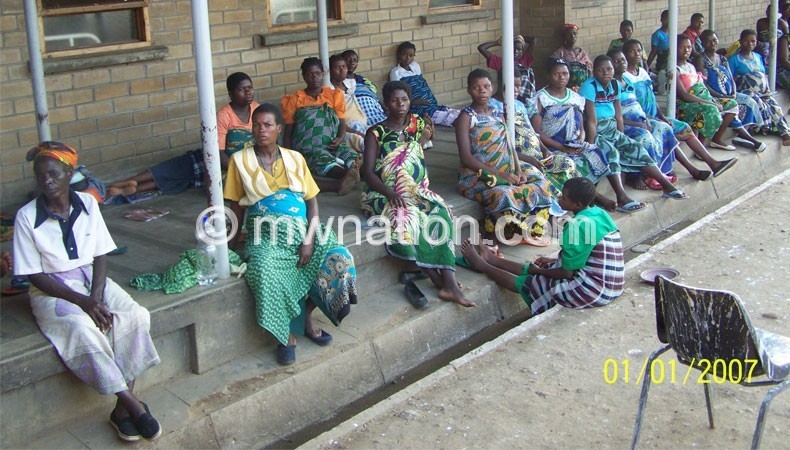Giving birth in the floods
Anne Wisitedi, a mother of six from Osiyana Village, Traditional Authority Mlolo in Nsanje, will never forget the day her baby boy, Madalitso, was born.
Wisitedi, 33, recalls that it was in the early morning hours of January 14 when there was a heavy downpour. Almost all the houses in her village were reduced to rubble. The remaining few were submerged in water, rendering them inhabitable.
 The villagers could not escape to higher ground because the waters were too deep.
The villagers could not escape to higher ground because the waters were too deep.
“The water level was up to my neck. The only alternative was to climb up a tree to safety, but the water levels kept rising,” explains Wisitedi.
For three days, her family and other villagers were stuck in trees. Then the worst happened.
“I began feeling labour pains,” she says.
Still trapped in the tree, there was no hope of getting to a hospital. A few neighbours and relatives risked their lives, climbed down the tree and lifted their hands, ready to grab the baby as soon as he was born.
“It was a tough experience. I don’t even know how I managed. It is an experience I cannot explain, but thank God, my baby is alive,” says Wisitedi, still visibly traumatised from the events of that day.
Cutting Madalitso’s umbilical cord was another challenge. How were they going to cut the umbilical cord?
Like a miracle, Wisitedi’s first born son, 15-year old Alison, remembered that he had a sharp object in his pocket. It was an old razor blade. Despite the health risks that this posed, there was no choice, but to use the rusty blade.
Fortunately, the waters begun to subside and the villagers managed to put Wisitedi and her baby on a canoe to a Unicef supported Osiyana Camp in the uplands.
Today, Wisitedi and her family live in a makeshift tarpaulin tent with a mosquito net, provided by Medicines Sans Frontier (MSF), which stands for ‘doctors without borders’.
A health surveillance assistant (HSA) visits the camp every Tuesday and Thursday to provide health services to flood survivors.
Wisitedi says Madalitso recently received his first immunisation.
Context Kaonga, Action Aid camp manager for Osiyana, confirms that an HSA is on duty twice a week providing immunisation and general health services at the camp. It is through such services that baby Madalitso has survived.
At Osiyana Camp and other affected areas, Unicef supports partners in conducting active case identification of acute malnutrition among under-five children. Additionally, Unicef’s supporting partner, Goal Malawi, has constructed sanitation facilities and provided clean water supplies.
Wisitedi admits it is not easy to lose one’s home, possessions and livelihood. But the good news is that she has taken Madalitso to several growth monitoring exercises and he is healthy.
“We have now decided to settle upland, in Osiyana. My children are now back to school, thanks to Unicef, which has provided a tent as a classroom and school-in-a-box-kits, which include books, pens, boards and chalk,” she says.
In January, Malawi faced the worst floods since independence. The floods affected 15 districts and displaced about 230 000 people and 172 are still missing.
Childbearing for most mothers, especially in rural areas, is usually tough. Most pregnant women walk long distances to access a health facility. Even if they find a facility, there aren’t enough healthcare workers to help patients. The floods have worsened the situation in some areas.





